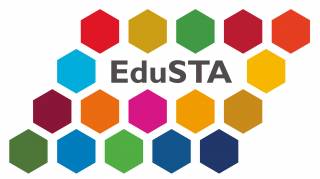Digital Open Badges are shareable digital certificates with embedded information about the competences and achievements of their earner. Badges have been developed to make knowledge, skills, and competences visible. They work as a tool for recognising what their earners have learnt and achieved through work, studies, hobbies, volunteering, and various other activities in their lives.
They can be used to validate competences and achievements; to motivate employees, volunteers, and students; to set up new kinds of learning pathways (like open badge-driven learning); and, for example, to monitor individual or organisational development goals. Flexible development of competences and their demonstration are at their core.
When talking about digital badges, it’s important to recognise that there are at least three different types of badges. Some badges may be granted automatically as an integrated part of diverse systems, for example, in connection with study attainments. A digital badge may also be earned automatically, based on participation in an event or education. And, finally, competence-based digital badges are based on an application which demonstrates an applicant’s competences. Badges support identification and recognition of competences of varying origins.
At their best, digital badges may have an impact on applicants´ motivation and enable supervision and assessment of competence development in a new and flexible way. The focus is on competences and flexible competence development methods. Brauer (2019) published a research-based model for the digital badge-driven learning which works as a ground for the project approach.
Competence-based digital open badges in the project
The project has developed competence-based digital badges for four specified ESD competence areas. These are Sustainability Literacy, Learning Ecosystem Design, Enabling Action and Reflexive Praxis Competence. Each of these competence areas consists of one or more micro badges, which together form the badge constellation for the project and its pilot projects. When an educator has achieved a certain number of micro badges, he or she can earn the meta badge “Sustainable Future Educator”.
The project applies digital open badge-driven learning process model (Brauer, 2019) together with a broad palette of training solutions, educational materials, and pedagogical guidelines. Detailed badge descriptions help educators demonstrate their skills and competences; in addition, criteria help applicants conduct a self-assessment of their own performance. Competence-based digital badges work as microcredentials and help educators to demonstrate their skills via authentic working context in their educational institution and networks.
The EduSTA badge constellation will be published at the end of 2023.
Piloting
In work package 5, the learning modules and digital open badge-driven learning pathways are piloted by all partners in 2024.
Piloting happens as part of teacher education programmes (pre-service teachers), continuous learning offered to in-service teachers, or as online self-study implementations depending on the organizational structures of the universities.
The pilots are executed both in English and in the teaching languages of the universities. The pilots feed the refinement and reflection of the results of WPs 2-4 in spring 2025.
The work package is divided into the following tasks:
- Piloting preparations
- Implementing pilot modules and digital open badge-driven learning pathways
- Evaluating the pilots
The piloting work package is led by TAMK and University of Gothenburg (evaluation).

